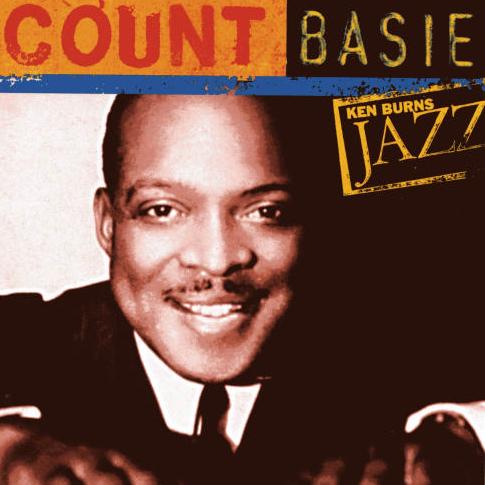1/13/11 – Ken Burns Jazz: Count Basie
I always thought jazz was like the trunk of a tree. After the tree has grown, many branches have spread out. They're all with different leaves and they all look beautiful. But at the end of the season, they fold back up and it's still the tree trunk.
- Earl Hines
- Earl Hines
Like many compilations, this disc spans the gamut of Basie’s career. Unlike Django’s a few days back, though, you can hear an evolution (or at least a shift) in the sound of the ensemble. Part of it I’m sure is due to changes in personnel over the 50 years Basie spent as bandleader, but just comparing a few of Basie’s signature tunes, “One O’Clock Jump” and “April in Paris” for example, the difference is staggering. The first, a soft shuffle from 1937, the second a hard swinging, brassy in-your-face tune recorded 18 years later. Like so many artists, it seems that the older Basie got, the more risks he took and the bolder his music got.
Ah, old school big band era swing. There is a frantic energy to some of the uptempo tracks such as “Toby” that not only gets toes tapping and bodies on the dance floor jitterbugging, but almost pushes it too far – like the music is nervously running away and the entire band is racing to catch up with it. Others, like “One O’Clock Jump” and “John’s Idea” hit a nice middle swing feel that let not only the band’s precision and style shine, but also give Basie some room to gracefully dance on the piano keys. It’s a shame more modern bands aren’t fronted by pianists… or maybe they are and it’s just my limited experience at UNT that belies that fact.
A lot of the rhythms of Basie’s tunes seem more straightforward than syncopated, while still swinging pretty hard. The resulting “stomp” style lends a certain aggressiveness to the music; perhaps that’s where the term got its name – you feel the beat strongly with your whole foot instead of anticipating the beat tapping your toes.
Ballads such as “Blue and Sentimental” and slower swing tunes like “Softly, With Feeling” are soft and gentle, more nostalgic sounding than heartfelt love songs or aching my-man’s-gone-now depressing tunes. (Softly with feeling, sure, but not so blue… I’ll buy sentimental though. :-P ) The latter also features Basie on organ instead of piano; a nice change is tone from the rest of the tunes present. Still, even the darker “Li’l Darlin’” seems too punctuated by the staccato articulation in the horn section to “weep” like a ballad should, in my opinion. It’s a great tune, perhaps my favorite on the CD, but I wish on some level it was handled differently by the arranger.
A few of his arrangements, such as “Dark Rapture” feature vocalists in addition to the band, in this case, Helen Humes. I’d like to at some point take a look at some of his scores, as big band charts with vocals are often poorly arranged. Not the case here – Helen never seems to be competing with the band, but there is plenty behind her to work with.
“Going to Chicago
“Corner Pocket” seems to have a much brighter tone than many of the other tunes, particularly Basie’s early work, partially because of the rhythmic piano opening. It seems that as the band developed, Basie (or his arrangers) seemed to be more driven by the trumpet section, whereas his earlier stuff featured the saxes more. Even when the saxes carry the melodies, such as “Every Day I Have the Blues,” it’s the punch brass hits that stand out in this tempo de burlesque chart. Joe Williams, the vocalist, has a lot more room than Humes did on “Dark Rapture,” particularly on the opening verse, where the horns are almost completely absent.
I think the one thing I wish this album is missing is more collaborations with singers; I would have loved to hear some of Basie’s work with Ella Fitzgerald and Billy Holliday. Particularly if it were in the vein of “Dark Rapture.”
Next up – The Notorious B.I.G: Greatest Hits
Next week – A Love Supreme (John Coltrane)

No comments:
Post a Comment